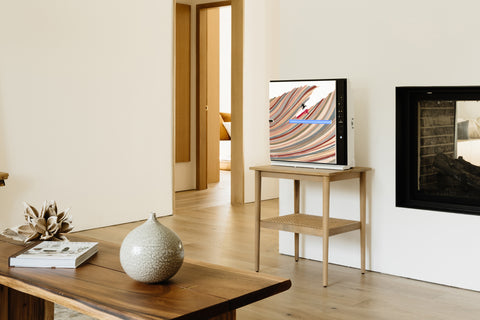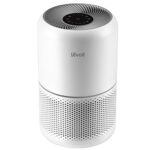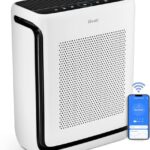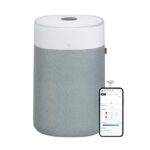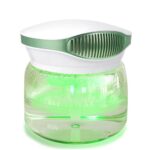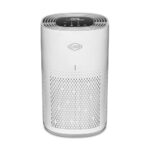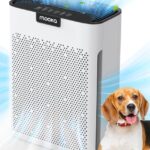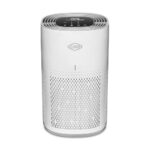Air purifiers are designed to help with allergies. But can they make allergies worse?
The short answer is yes, but it depends on several factors. Air purifiers can help remove allergens from the air, providing relief for many sufferers. Yet, not all air purifiers are created equal. Some may actually worsen symptoms if not used properly.
Factors such as the type of purifier, its maintenance, and the specific allergies in question play a crucial role. Understanding how these devices work and the common pitfalls can help you make an informed decision. In this post, we’ll explore how air purifiers can both help and potentially harm, ensuring you get the most benefit for your health.

Credit: www.allergyasthma.clinic
Introduction To Air Purifiers
Air purifiers are devices that clean the air. They remove harmful particles like dust, pollen, and pet dander. This helps people breathe easier. Air purifiers are often used at home and in offices. They are helpful for people with allergies and asthma. Many people believe they make the air healthier.
Air purifiers use different methods to clean air. Some use filters to trap particles. These filters can be HEPA, carbon, or UV light filters. Others use ionizers to charge particles, making them stick to surfaces. Some purifiers use a combination of these methods. The goal is to reduce the amount of pollutants in the air. Cleaner air can lead to better health and comfort.
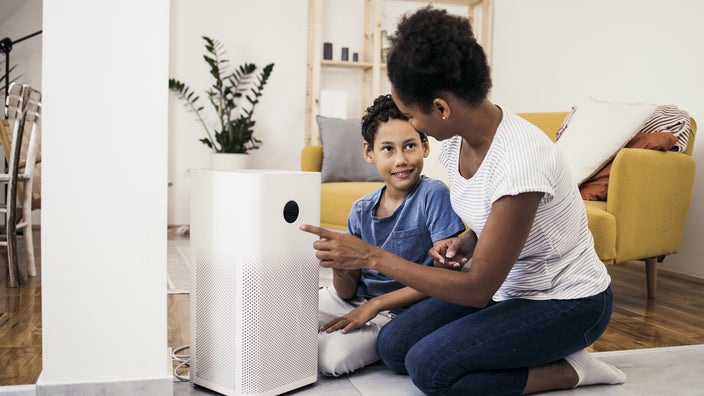
Credit: www.goodrx.com
Common Allergy Triggers
Pollen is a common allergen. It comes from plants, trees, and flowers. In the air, it can cause sneezing and itchy eyes. Air purifiers can help. They remove pollen from the air. This reduces allergy symptoms. But not all air purifiers work the same. Some may not capture very small pollen particles. Always check the filter quality. HEPA filters are the best for pollen.
Dust mites are tiny creatures. They live in carpets, bedding, and furniture. They can cause allergies. Symptoms include sneezing, runny nose, and itchy skin. Air purifiers can help reduce dust mites. They trap dust and mite waste. This makes the air cleaner. But regular cleaning is still needed. Vacuum often and wash bedding in hot water. Keep your home dry. Dust mites love humid places.
Benefits Of Air Purifiers
Air purifiers can help in reducing allergens in your home. They trap dust, pollen, and pet dander. This makes the air cleaner. Cleaner air means fewer allergy symptoms. For many people, this can mean less sneezing and coughing. It can help you breathe easier.
Air purifiers work to improve air quality. They remove harmful particles like smoke and mold spores. This can make your home safer. Clean air is good for everyone, especially those with allergies. It can help you sleep better and feel healthier.
Potential Downsides Of Air Purifiers
Some air purifiers release ozone. Ozone can be harmful. It can irritate the lungs. This might worsen allergies. People with asthma may find it harder to breathe. Ozone in high amounts can hurt the air quality. Choose an air purifier that does not emit ozone.
Air purifiers need regular cleaning. Dirty filters can make the air worse. They can spread dust and allergens. Always check and clean the filters. Replace them if needed. Make sure the purifier works well. It should not blow dirty air back into the room.
Types Of Air Purifiers
HEPA filters are very common in air purifiers. They trap tiny particles like dust and pollen. These filters can help with allergy symptoms. But, they need regular cleaning. A dirty filter can blow allergens back into the air. This may make allergies worse. Always check the filter’s condition. Replace it when necessary.
Ionizers work differently from HEPA filters. They release ions into the air. These ions attach to particles, making them heavy. The particles then fall to the ground. This can reduce allergens in the air. But, ionizers can produce ozone. Ozone can irritate the lungs. It might trigger asthma or worsen allergies. Choose ionizers with low ozone emission.
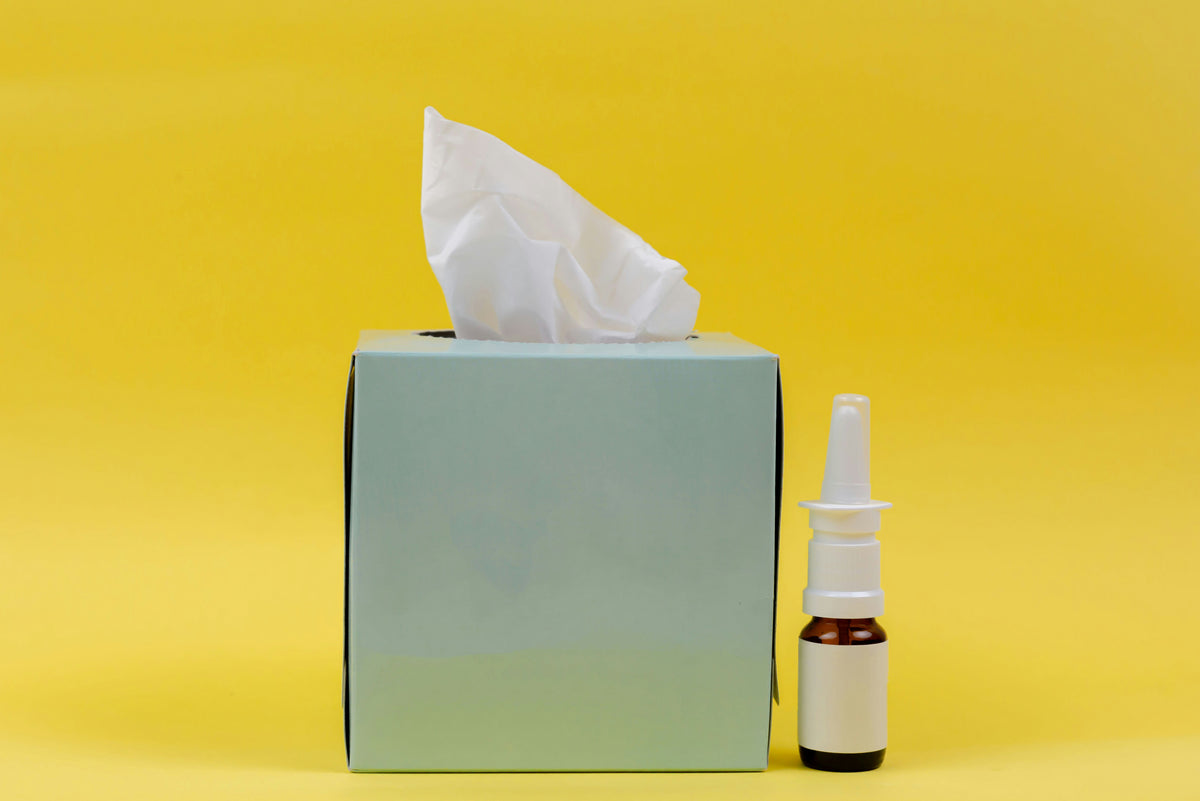
Credit: www.rabbitair.com
Choosing The Right Air Purifier
An air purifier must fit the room size. Small purifiers suit small rooms. Large purifiers work best in bigger spaces. Check the purifier’s coverage area. It should match or exceed your room size. This ensures effective cleaning.
Different purifiers target different needs. HEPA filters trap dust and pollen. Carbon filters remove odors. UV purifiers kill germs. Choose based on your allergy triggers. This helps reduce symptoms.
Proper Use And Maintenance
Change the filter regularly. Dirty filters can’t clean the air. They can spread more allergens. Follow the manufacturer’s instructions. Use the right filter type. A clean filter is very important. It ensures your air purifier works well.
Place the air purifier in the right spot. Near the source of allergens is best. Keep it away from walls and furniture. Ensure air can flow freely. The living room or bedroom is ideal. Run it continuously for best results.
Personal Experiences And Case Studies
Many people found relief with air purifiers. John from Texas shared his experience. He had severe allergies. After buying an air purifier, his symptoms improved. He could sleep better. His sneezing reduced. Another person, Maria, had similar results. She lived in a dusty area. The air purifier helped her breathe easier. She noticed a big difference in her health. These are just two success stories. Many others have shared positive experiences too.
Some people had bad experiences with air purifiers. Tom from New York noticed his allergies got worse. He felt more congested. He had more sneezing. Jane had a similar issue. She felt the air purifier made her allergies worse. These stories show air purifiers do not work for everyone. Each person’s experience is different. It is important to try and see what works best.
Frequently Asked Questions
Can Air Purifiers Trigger Allergies?
Air purifiers typically reduce allergens, but improper maintenance can worsen symptoms. Ensure filters are clean and replaced regularly.
What Are The Side Effects Of Air Purifiers?
Some air purifiers emit ozone, which can irritate respiratory systems. Always choose ozone-free models for safety.
How Do Air Purifiers Help With Allergies?
Air purifiers trap allergens like pollen, dust, and pet dander, providing cleaner air and reducing allergy symptoms.
Can Hepa Filters Make Allergies Worse?
HEPA filters are effective against allergens. However, if not maintained properly, they can harbor mold or bacteria.
Conclusion
Air purifiers can help with allergies if used correctly. Choose the right model. Follow maintenance instructions carefully. Dirty filters can worsen symptoms. Always keep your device clean. Regularly change filters. Monitor your indoor air quality. Consider professional advice if unsure.
Proper usage ensures better air and fewer allergies. Your health matters. Take steps to breathe easier.

